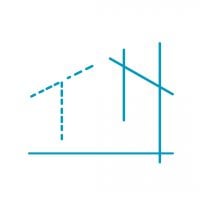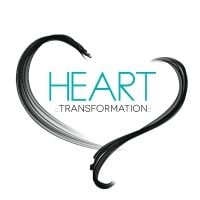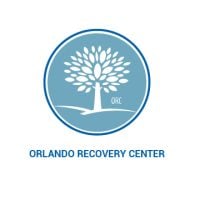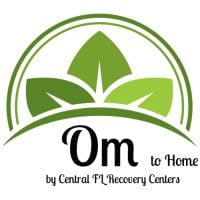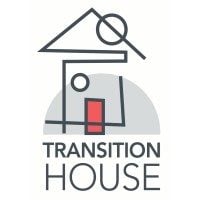
Transition House
Drug Rehab Center in Kissimmee, Florida
- Opioid Addiction
- Dual Diagnosis
- Drug Addiction
- Alcoholism
Transition House is a 150-bed JCAHO-accredited facility offering a range of treatment services for individuals dealing with alcohol and drug addiction as well as dual diagnosis.
About
Transition House is a reputable drug treatment center located in Kissimmee, Florida. It is accredited by the Joint Commission on Accreditation of Healthcare Organizations (JCAHO), ensuring that it meets high standards of quality and safety. With a capacity of 150 beds, Transition House offers comprehensive treatment for individuals struggling with alcoholism, opioid addiction, dual diagnosis, and drug addiction. They provide various levels of care, including drug rehab, inpatient, and residential treatment, catering to the specific needs of each individual seeking recovery.
Transition House offers a range of services to support individuals dealing with addiction and substance abuse. They provide personalized treatment plans that address both physical and psychological aspects of addiction, aiming for lasting recovery. Through their programs, individuals can access comprehensive therapy, counseling, and support groups to address the underlying causes of their addiction. Transition House also offers detoxification services to safely manage withdrawal symptoms for those in need. Their commitment to excellence in treatment and their acceptance of private health insurance make Transition House a valuable resource for those seeking effective and compassionate addiction treatment.
Genders
Ages
Modality
Additional
Accreditations

JCAHO
Conditions and Issues Treated
Within the past decade, opioid addiction has become a nationwide epidemic. The United States hosts one of the world’s highest rates of opioid use or abuse and has one of the highest rates of opioid-related deaths. In the United States, opioid drugs are classified as Schedule II-IV controlled substances due to their highly addictive properties and potential for abuse. These include morphine, opium, heroin, oxycodone, hydrocodone, methadone, and fentanyl. Physicians usually prescribe opioids to help control pain.
Over time, opioid users develop a tolerance for the drugs, which makes it difficult, if not impossible, to function without them. In turn, opioid users often resort to illicit means of obtaining the drugs. These means can include drug dealers, friends, and family members who do not have legitimate prescriptions for the drugs. Opioid addiction can quickly lead to heroin use, especially those seeking more intense highs than prescription opioids offer. Due to the high risk of overdose, heroin users are at a much higher risk for illness and death.
Levels of Care Offered
This center offers a variety of custom treatment tailored to individual recovery. Currently available are Drug Rehab, Inpatient, Residential, with additional therapies available as listed below.
Inpatient treatment centers offer a safe, secure, and often medically supervised environment for drug or alcohol-addicted individuals. Many of these facilities are equipped to provide detoxification, treatment for co-occurring mental health disorders, and aftercare programs.
The patient typically spends 28 to 30 days at the facility and will receive extensive drug counseling. They will also learn how to live without drugs and how to make the right decisions in life.
Residential treatment programs are those that offer housing and meals in addition to substance abuse treatment. Rehab facilities that offer residential treatment allow patients to focus solely on recovery, in an environment totally separate from their lives. Some rehab centers specialize in short-term residential treatment (a few days to a week or two), while others solely provide treatment on a long-term basis (several weeks to months). Some offer both, and tailor treatment to the patient’s individual requirements.
Therapies & Programs
Individualized Treatment is essential because it gives addicts the ability to participate in a program that meets their unique needs. An addict should work with professionals who understand what they’re going through, especially if the addict is actively using. Finding the right treatment program for an addict is difficult, but it’s even harder without communicating with those who have experience treating your specific situation.
Couples therapy is a treatment approach where the patients and their partners are engaged together. When a person becomes a victim of substance abuse, it affects the patient and his people, particularly his partner. Their relationship can become strained due to lack of communication, financial issues, loss of trust, lack of intimacy, and physical abuse in more severe cases. Couples therapy addresses these issues and tries to rebuild the trust between the partners. The partner’s involvement in the process will result in greater chances of treatment success and sustained recovery.
The therapies typically involve all family members, potentially including siblings, children, and parents who play a role in their daily lives. These sessions can be essential because they address past issues that may have affected an addict or alcoholic’s recovery process. They provide support during this time when it is needed most!
A family therapy session, often called a family meeting or intervention, is a necessary process that helps loved ones of addicts see their situation in a new light. It’s also one of the most challenging things families will ever have to do when they’re facing a loved one battling addiction or alcoholism.
Group therapy sessions provide recovering addicts with a chance to cope with everyday situations that many face. Group therapy sessions are held in rehab facilities, clinics, churches or community centers that offer drug addiction treatment.
People who attend these groups are encouraged to voice their feelings and support other addicts in recovery. This helps group members strengthen their own recovery program while cheering on others who are struggling with sobriety.
Life skills training is beneficial for addicts in recovery because it helps them learn how to take care of themselves and improve their quality of life, which can promote feelings of purpose and motivation.
This works by teaching individuals life-enhancing skills that support positive living, including:
- Healthy lifestyle habits
- Skills to effectively manage stress
- Effective communication skills to help them get their needs met without turning to drugs or alcohol
- Money management and budgeting skills so they can continue to take care of themselves after treatment ends.
Payment Options Accepted
For specific insurance or payment methods please contact us.
Is your insurance accepted?
Ask an expert, call (888) 674-0062
Additional Details
Specifics, location, and helpful extra information.
Kissimmee, Florida 34744 Phone Number(407) 846-0068 Meta DetailsUpdated November 25, 2023
Staff Verified
Patient Reviews
There are no reviews yet. Be the first one to write one.
Kissimmee, Florida Addiction Information
Florida is one of the nation's epicenters for substance abuse and drug-related overdoses. In 2014, around 410,000 Florida residents were addicted to drugs and alcohol. Over the last 10 years, 12% of all deaths in the state were attributed to substance abuse. Treatment admissions for alcohol reached 24,329 patients in 2016, and 2.5% of Florida high school students admitted to using crack cocaine.
Kissimmee has been particularly hard hit by the opioid epidemic sweeping the nation. 58% of drug arrests in Osceola County in 2018 were for marijuana. The most commonly abused drugs in Kissimmee are marijuana, heroin, cocaine, and methamphetamine. There are drug and alcohol rehab facilities in Kissimmee that can help those who are struggling with addiction.
Treatment in Nearby Cities
- Jupiter, FL (123.8 mi.)
- Davie, FL (169.3 mi.)
- Yulee, FL (161.6 mi.)
- Avon Park, FL (49.4 mi.)
- Mulberry, FL (45.1 mi.)
Centers near Transition House

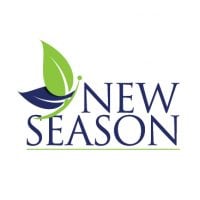
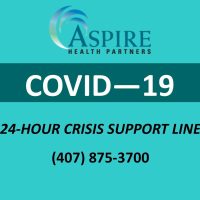
The facility name, logo and brand are the property and registered trademarks of Transition House, and are being used for identification and informational purposes only. Use of these names, logos and brands shall not imply endorsement. RehabNow.org is not affiliated with or sponsored by Transition House.


